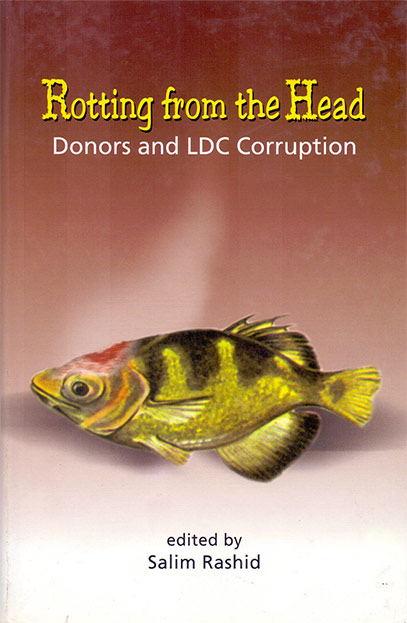- Shop
- Rotting from the Head: Donors and LDC Corruption
Rotting from the Head: Donors and LDC Corruption
https://uplbooks.com/shop/9789840517015-rotting-from-the-head-donors-and-ldc-corruption-6608 https://uplbooks.com/web/image/product.template/6608/image_1920?unique=90f5a49
| Language: English |
Tags :
Book Info
This book asks whether the corruption prevalent is not often deliberately caused by the donor agencies themselves. Civil society and aid agencies have persistently and widely trumpeted rampant corruption within the bureaucracy and political bodies in the Third World as the primary obstacle to sustainable development but the central role of donors in this matter has not been carefully analysed. This issue is thus a radically new addition to the literature on development. The essays introduce the general problem of corruption and development in the Third World as well as the nature and role of the aid agencies. They examine the impact of the donors -IMF, the World Bank and USAID -on the LDCs through institutional and statistical analysis. It is the apparent ineffectual and even counterproductive nature of development aid that leads us to ask whether the source of the problem could not be the aid agencies themselves. This hypothesis of donor culpability is then examined at length in a case study of Bangladesh involving UNDP's largest project for sustainable environmental management. The World Bank too was a moving party in this project. Using primary documents that have been submitted and used in judicial proceedings in the High Court, it is shown that multilateral aid agencies are frequently and actively complicit in furthering LDC corruption and misgovernance. It is thus ironic that the very same agencies that insist upon accountability and transparency in the LDC government's finances and management have zealously closed their own books from public scrutiny. Is this not a perpetual source of temptation to the self-governing elites who run the multilateral donor agencies? And since the donors work so closely with the upper echelons of all LDC bureaucracies, and politicians, whether this is not a primary cause of the systemic corruption in LDC's. A fish rots from its head says a Bengali proverb. If the heads of the LDC government departments are being thus compromised, how can good governance spread through the lower rungs of the LDC bureaucracies? We need to ask whether the non-transparent donor agencies are causing irreparable harm to institutional development and good governance efforts by imposing itself in such manner as compels an aid-dependent country to continually compromise itself.




